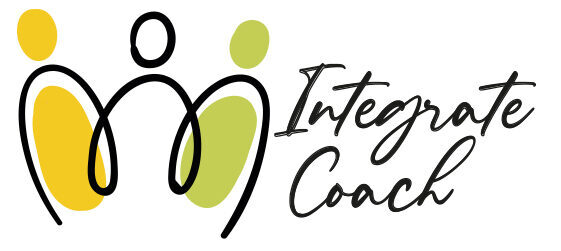Choosing the right career for your future is one of the most important decisions you will ever make. Your career affects your happiness, your income, your lifestyle, and your impact on the world. But, how do you know which career is right for you? And how do you make sure that your career choice will help you live the life you desire, achieving the success you want. Career choices are given much thought to, even at a young age but not all desires convert to choices made. This translation between what you want and what you choose, defines success and happiness.
In this article, we will share some tips and strategies on how to choose the right career for your future Here are the main points we will cover:
-
- Why choosing the right career is important for your future
-
- How to discover your passion, skills, and values
-
- How to research and explore different career options
-
- How to evaluate and compare different career paths
Why Choosing the Right Career is Important for Your Future
Choosing the right career is important for your future because it can affect many aspects of your life, such as:
-
- Your happiness: If you choose a career that you enjoy and find meaningful, you will be more satisfied and fulfilled with your work. You will also be more motivated, productive, and creative. On the other hand, if you choose a career that you dislike or find boring, you will be more stressed, frustrated, and unhappy with your work. You may also experience burnout, depression, or anxiety.
-
- Your income: If you choose a career that pays well and has good prospects, you will be able to afford a comfortable lifestyle and achieve your financial goals. You will also have more opportunities to grow and advance in your field. On the other hand, if you choose a career that pays poorly or has limited prospects, you may struggle to make ends meet and face financial difficulties. You may also have fewer chances to progress and develop in your field.
-
- Your lifestyle: If you choose a career that suits your personality, preferences, and needs, you will be able to balance your work and personal life better. But you will also have more freedom and flexibility to pursue your hobbies, interests, and passions. On the other hand, if you choose a career that clashes with your personality, preferences, or needs, you may have to sacrifice your work or personal life. You may also have less control and autonomy over your schedule, tasks, and environment.
-
- Your impact: If you choose a career that aligns with your values and goals, you will be able to make a positive difference in the world. You will also feel more proud and fulfilled with your work. On the other hand, if you choose a career that contradicts your values or goals, you may feel guilty or conflicted about your work. You may also feel less inspired and engaged with your work.
As you can see, choosing the right career is important for your future because it can affect your happiness, income, lifestyle, and impact. Therefore, it is worth spending some time and effort to find out what career is best for you.
At certain times when you feel like you are on a course that is not correct and the only way forward is Change, it is important in take the right steps to rectify it and choose a path that would provide all of the above and much more.

How to Discover Your Passion, Skills, and Values
One of the first steps to choosing the right career for your future is to discover your passion, skills, and values. These are the three main factors that can help you identify what kind of work you enjoy and excel at.
-
- Your passion: Your passion is what drives you and makes you excited about something. It is what gives you energy and motivation to pursue your goals. To discover your passion, ask yourself these questions: What do I love doing? What am I curious about? What makes me happy? What are my dreams?
-
- Your skills: Your skills are what enable you to perform well and achieve results in something. They are what give you confidence and competence in your work. To discover your skills, ask yourself these questions: What am I good at? What do I learn quickly? What do I get praised for? What are my strengths?
-
- Your values: Your values are what matter to you and guide your decisions in life. They are what give you meaning and purpose in your work. To discover your values, ask yourself these questions: What do I care about? What do I believe in? What do I stand for? What are my priorities?
Why Discovering your Passions, Skills and Values are Important
By discovering your passion, skills, and values, you can get a clearer picture of what kind of work suits you best. You can also use them as criteria to evaluate different career options later on.
In The Long Game: How to Be a Long-Term Thinker in a Short-Term World, Dorie Clark lays emphasis on the fact that the hours in a day (24 to be precise) are the same in everyone’s life. The key to becoming effective is how we choose to use this time. Success is not meant to last a short while, but long term and the manner in which we chose to live day-to-day impacts our career and our choices.(Long Game – dorieclark.com )
Our Passion, Skills and Values are a key identifier to achieve success in all walks of life. The manner in which we identify with these and inculcate it into our very fabric determines success.

How to Research and Explore Different Career Options
Once you have discovered your passion, skills, and values, the next step is to research and explore different career options that match them. The power of your thoughts will enable and guide you along in choosing a career that would provide you with satisfaction and purpose. Some ways that can help you research and find clarity are the following:
-
- Online research: You can use online tools and resources to learn more about different careers, such as their descriptions, requirements, salaries, outlooks, and more. Some examples of online tools and resources are: CareerOneStop, O*NET Online, Bureau of Labor Statistics, Glassdoor, Indeed, and LinkedIn.
-
- Informational interviews: You can talk to people who work in different careers and ask them questions about their work, such as their roles, responsibilities, challenges, rewards, and advice. Some examples of questions you can ask are: What do you do in a typical day? What do you like and dislike about your work? How did you get into this career? What skills and qualifications do you need? What are the opportunities and challenges in this field?
-
- Job shadowing: You can observe and follow people who work in different careers and see what they do in their work environment. You can also ask them questions and get feedback on your performance. Some examples of things you can observe and learn are: How they interact with their colleagues, clients, and customers. How they use their tools, equipment, and technology. How they solve problems, make decisions, and handle stress. How they balance their work and personal life.
-
- Volunteering: You can offer your time and skills to help out in different organizations or causes that interest you. You can also gain valuable experience and network with people who work in different fields. Some examples of things you can do are: Help out in a local charity, school, or hospital. Join a community service or social justice project. Participate in a fundraising or awareness campaign.
By researching and exploring different career options, you can gain more knowledge and insight into what kind of work appeals to you.

How to Evaluate and Compare Different Career Paths
After you have researched and explored different career options, the final step is to evaluate and compare them to find the best one for you. You can do this by using a simple matrix or table that lists the pros and cons of each option based on your passion, skills, values, and other factors that are important to you.
For example, let’s say you are interested in three career options: graphic designer, teacher, and accountant. You can create a matrix like this:
| Career | Pros | Cons |
|---|---|---|
| Graphic designer | – Matches your passion for creativity and art – Utilizes your skills in design and technology – Aligns with your values of self-expression and innovation – Pays well and has good prospects |
– Requires a lot of training and education – Involves a lot of competition and pressure – Demands a lot of time and attention to detail – May not offer a lot of stability or security |
| Teacher | – Matches your passion for learning and teaching – Utilizes your skills in communication and leadership – Aligns with your values of education and service – Offers a lot of satisfaction and fulfilment |
– Requires a lot of training and certification – Involves a lot of challenges and stress – Demands a lot of patience and flexibility – May not pay well or have good prospects |
| Accountant | – Matches your passion for numbers and logic – Utilizes your skills in math and analysis – Aligns with your values of accuracy and integrity – Pays well and has good prospects |
– Requires a lot of training and education – Involves a lot of repetition and routine – Demands a lot of concentration and compliance – May not offer a lot of creativity or variety |
By using this matrix, you can see the advantages and disadvantages of each career option based on your own criteria. You can also weigh them against each other to see which one is the most suitable for you.
Conclusion
Steve Dalton’s ‘The 2 Hour Job Search, is a great job search manual that gives those seeking a career, an inlet into the tech world and presents a formula of efficiently and effectively targeting potential employers. He shows how to work smart and faster using technological resources to their advantage.(Amazon.com: The 2-Hour Job Search: Using Technology to Get the Right Job Faster eBook : Dalton, Steve: Kindle Store )
A career choice is paramount in living a fulfilled life. Sometimes the choices made early on, may be non- desirable at a later stage. It is never too late to make a career change and therefore, it is never too late to consider career choices or its resources as a way going forward. The trajectory of life gives a sense of purpose, determination and fulfilment, only if it is chosen wisely.


